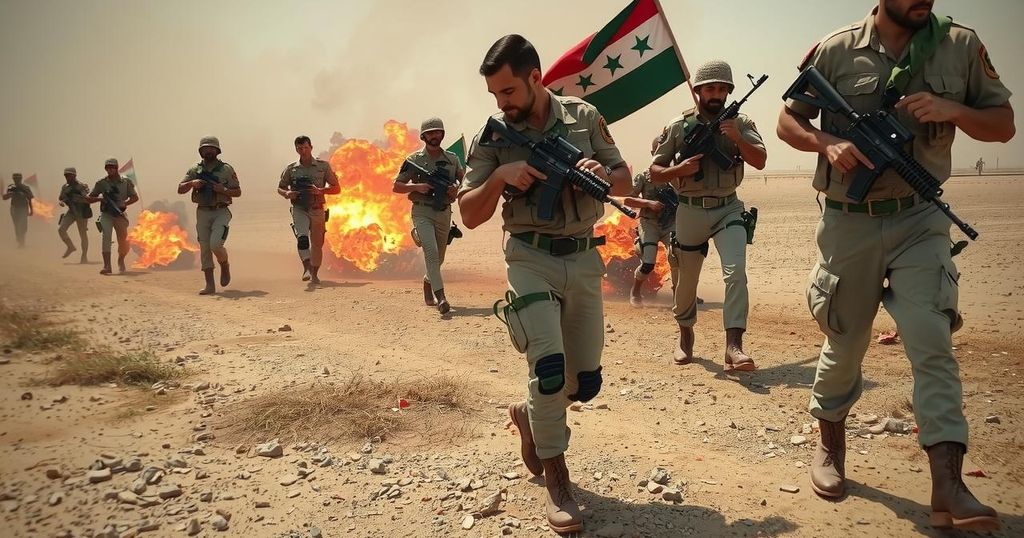Syria’s Renewed Conflict: Understanding the Rebel Offensive and Assad’s Resilience
The Syrian conflict has surged following recent attacks in the Middle East, driven by a combination of regional upheavals and revived rebel offensives led by HTS. While these groups have made substantial territorial gains, the Assad regime still retains a base of support among some segments of the population, complicating the conflict. The international community is urged to facilitate political solutions amidst this turmoil to ensure stability and prevent further violence.
The current resurgence of conflict in Syria has emerged as a significant consequence of the upheaval that has engulfed the Middle East, particularly following the Hamas attacks on Israel on October 7, 2022. This shift in dynamics demonstrates that the regional conflict is intensifying rather than diminishing. President Bashar al-Assad’s regime, which had endured a decade of strife since 2011 thanks to the support of formidable allies including Russia, Iran, and Hezbollah, now faces a renewed challenge. As these allies experience setbacks, particularly Iran’s vulnerability to Israeli strikes, the Assad regime’s grip on power appears increasingly tenuous despite maintaining control over major urban centers.
The recent offensive led by the coalition of rebel groups spearheaded by Hayat Tahrir al-Sham (HTS) is remarkable, having rapidly taken territory from government forces in a short span of time. HTS, with its origins linked to al-Qaeda, has strategically rebranded itself to widen its appeal and distance itself from extremist pasts, emphasizing participation in a broader resistance movement against the Assad regime. The offensive has garnered attention as it marks significant territorial gains, including capturing the historic citadel of Aleppo. This type of coordination among rebel factions, along with reports of capturing substantial military equipment, indicates a shift in the conflict’s landscape.
Despite this, the Assad regime retains a resilient core of support among some Syrian populations, who view it as the lesser evil compared to the extremist ideologies exhibited by jihadist entities. The potential for resurgence in the conflict remains as various anti-Assad groups exist, which could once again threaten the regime’s stability, pushing it into a corner should they mobilize effectively. The international community, particularly the United Nations, expresses concern over the implications of this renewed violence and the necessity of a political resolution to the longstanding conflict, advocating for efforts towards a genuine political process as outlined in UN Security Council resolutions.
The Syrian conflict has been ongoing since 2011, initiated by protests against President Bashar al-Assad’s regime during the Arab uprisings. Since then, the war has led to a humanitarian crisis, with millions displaced and over half a million deaths. Assad managed to maintain his rule by leveraging support from allies like Russia and Iran, but recent events indicate a precarious situation for his regime. The recent offensive by HTS and other factions suggests a complex and evolving battlefield, where neither side can claim complete victory. The geopolitical ramifications of the conflict, intertwined with other regional tensions, complicate the pursuit of a peaceful resolution.
The situation in Syria is once again dynamic, characterized by the remarkable advances made by rebel groups against the Assad regime. Despite the challenges that the regime currently faces, particularly with weakened allies and recent territorial losses, it is premature to dismiss its chances of regaining stability. The presence of a supportive faction of Syrians and the fragmented opposition landscape presents an uncertain future. Therefore, the international community must prioritize a political solution to avoid further humanitarian catastrophe and promote peace in the region.
Original Source: www.bbc.co.uk




Post Comment